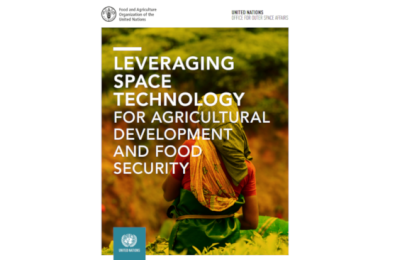The United Nations Office for Outer Space Affairs (UNOOSA) and the Food and Agriculture Organization (FAO) have co-authored a publication which emphasizes the importance of space technologies in addressing global food security challenges and supporting the 2030 Agenda for Sustainable Development.
Agriculture faces numerous challenges including climate change, extreme weather, limited resources, evolving dietary needs, and population growth. The publication highlights the necessity to tackle these challenges through innovative solutions. Against this backdrop, space technology plays an essential role in transforming agricultural practices and ensuring sustainability and food security. In this transformative process, collaborative efforts among stakeholders to integrate space-based technologies while mitigating risks such as space debris and fostering the efficient, sustainable development of space resources are crucial.
The publication focuses on technologies like satellite imagery and Global Navigation Satellite Systems (GNSS) which are crucial for modern agricultural practices.
Space-based technologies such as satellite imagery, GNSS, and others provide vital data for monitoring natural resources, enhancing sustainable agricultural practices, and ensuring food security. These technologies assist with crop monitoring, water management, and weather forecasting. Acknowledging the opportunities and challenges associated with these technologies, the FAO and UNOOSA collaboration aims to harness space-based solutions to advance agricultural development and food security.
This publication was prepared as part of FAO's contribution to the Committee on the Peaceful Uses of Outer Space (COPUOS), specifically addressing the use of space technology for agricultural progress and food security (A/79/20, para. 317).
Read the full press release here.
Download the publication here.

